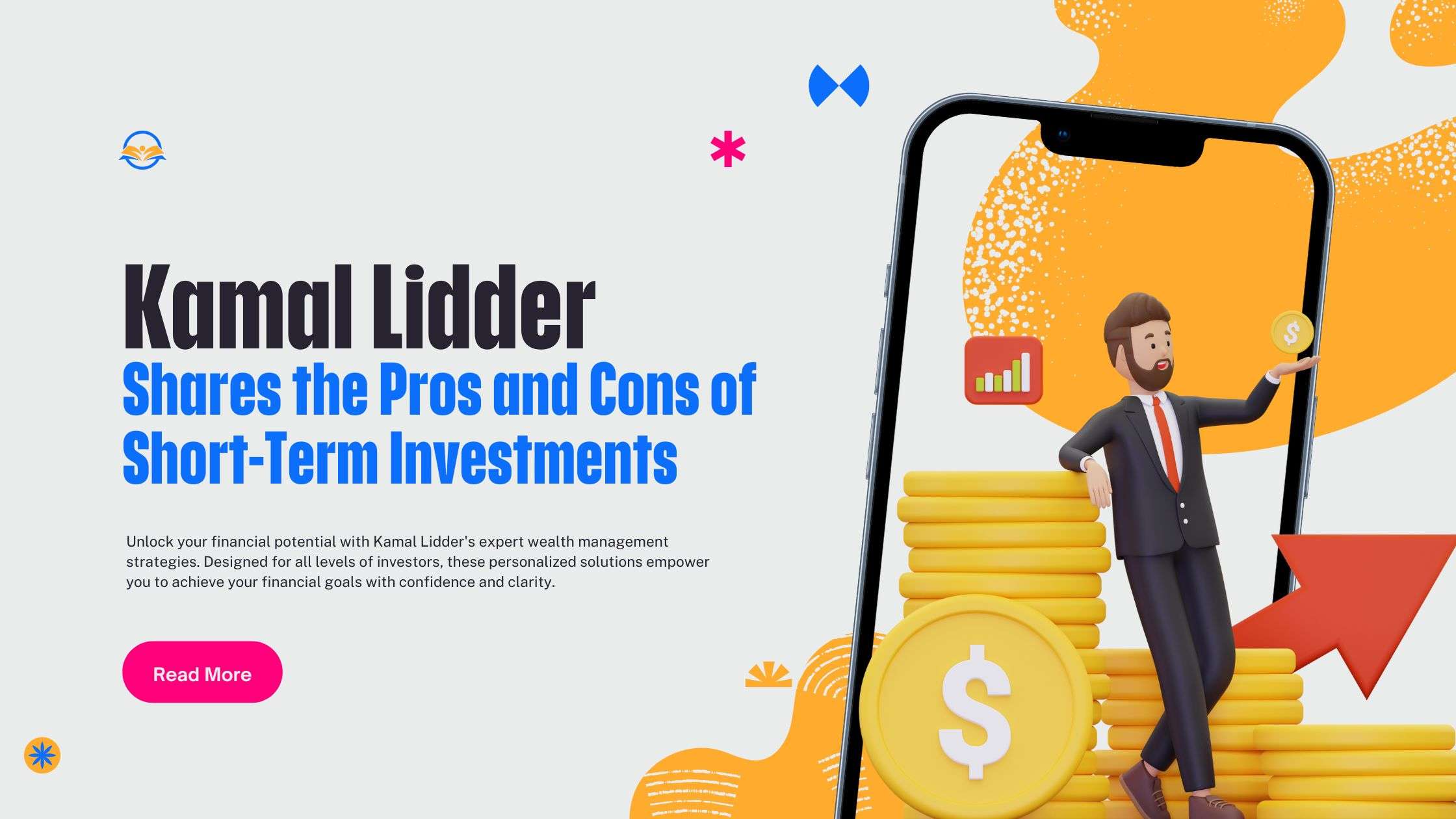Kamal Lidder Shares the Pros and Cons of Short-Term Investments
When it comes to building wealth, short-term investments are often a popular option for those looking to see quicker returns on their money. Kamal Lidder, a seasoned wealth advisor with over 18 years of experience in financial services, understands the appeal of short-term investments and highlights the need to weigh the pros and cons carefully. While these investments offer flexibility and the potential for fast gains, they also carry risks that every investor should be aware of.
In this blog, Kamal Lidder shares a balanced view of short-term investments, focusing on their advantages, challenges, and what you should consider before diving in.
What Are Short-Term Investments?
Short-term investments are financial assets that are expected to be held for a brief period, typically less than three years. The goal is to generate quick returns through the sale or maturation of these assets. Examples include:
Stocks (especially those with high volatility)
Bonds (with short maturity dates)
Mutual funds
Money market accounts
Certificates of Deposit (CDs)
While the timeframe is shorter than with long-term investments like retirement accounts or real estate, the possibility of faster gains is appealing to many. However, short-term investing requires strategy, careful timing, and an understanding of the risks involved.
The Pros of Short-Term Investments
Kamal Lidder explains that short-term investments can offer several advantages for investors, particularly for those who prioritize liquidity and flexibility. Here are some of the key benefits:
1. Quick Access to Funds
One of the biggest perks of short-term investments is liquidity. Unlike long-term investments, where your money might be locked up for years, short-term investments allow you to access your funds quickly—often within months. This can be particularly beneficial if you need the money for upcoming expenses like buying a home, funding a vacation, or covering unexpected costs.
2. Potential for Quick Returns
Some short-term investments, like stocks, can offer significant gains over a short period, depending on market conditions. For investors who are willing to take on more risk, this can be an exciting opportunity to grow wealth rapidly.
3. Flexibility
Short-term investments allow for greater flexibility in your portfolio. If your financial situation changes, you can adjust your investment strategy more easily. For example, you might decide to shift to a more conservative approach if market conditions become uncertain or reinvest in higher-risk options if the outlook is favorable.
4. Lower Commitment
Compared to long-term investments, short-term investments require a smaller time commitment. You’re not tied to one strategy or asset for years or even decades, which can offer peace of mind if you're concerned about market fluctuations or changing financial goals.
The Cons of Short-Term Investments
While short-term investments come with some attractive benefits, Kamal Lidder points out that they aren’t without their drawbacks. It’s important to consider the risks and downsides before jumping in.
1. Market Volatility
The financial markets can be unpredictable, especially in the short term. While stocks, for instance, can yield high returns quickly, they can also experience sharp declines just as fast. This volatility makes short-term investing riskier than long-term strategies, which have more time to recover from downturns.
2. Lower Returns Compared to Long-Term Investments
In general, short-term investments tend to offer lower overall returns compared to long-term ones. For example, the stock market has historically provided higher returns for those who stay invested over many years, thanks to compound growth. By focusing on short-term gains, you might miss out on the larger potential benefits that come from long-term investing.
3. Tax Implications
Kamal Lidder highlights that short-term gains can come with higher tax obligations. Profits from assets held for less than a year are typically taxed at higher rates than long-term capital gains. This means that even if you make a quick profit, a portion of it might be diminished by taxes.
4. Time and Attention
Short-term investing requires more active management. You’ll need to monitor your investments closely and make quick decisions when the market moves. For investors who don’t have the time or expertise to manage their portfolio actively, this can be stressful and challenging.
Visit:- https://www.einpresswire.com/a....nd-wealth-management








